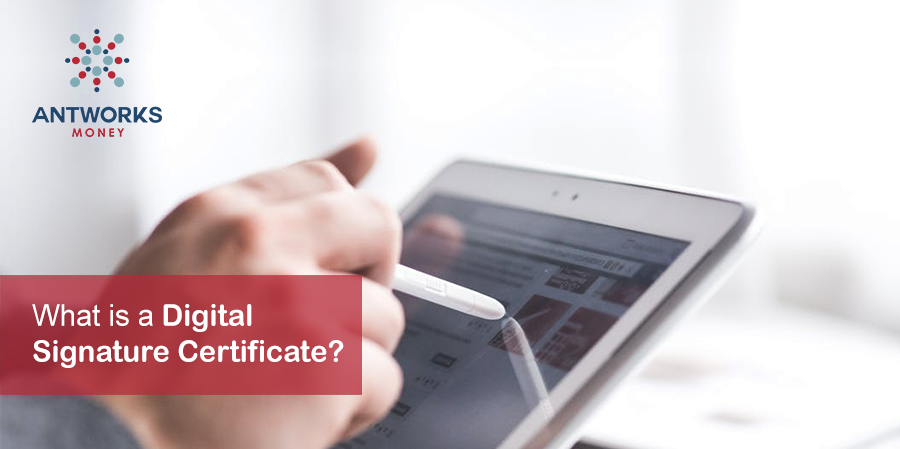Everything began when the Ministry of Company Affairs propelled a lofty e-Governance program named MCA21, under which e-frames are informed and statutory documenting has been made necessary. With a specific end goal to verify these e-frames, a Digital Signature Certificate (DSC) issued by the TCS Company is required. A Digital Signature Certificate utilized for e-frames has an indistinguishable legitimate acknowledgment and legitimacy from that of a written by hand signature.
The presentation of Digital Signature Certificates have improved the confirmation procedure for some critical archives and made it significantly quicker and less difficult. Much the same as an international ID, a DSC gives data about the sender, is imitation safe, and is an exceedingly secured archive.
We will let you know all that you have to think about Digital Signature Certificates. For instance, did you realize that there are three distinct levels of Digital Signature Certificates? We’ll enlighten you concerning the diverse highlights of Digital Signature Certificates, how to approve them, and about their future too.
Understanding Digital Signature Certificates
The presentation of Digital Signature Certificates have improved the check procedure for some vital archives and made online exchanges substantially quicker. A DSC contains the name of an authentication holder, a lapse date, a special serial number, a duplicate of the declaration holder’s open key (utilized for encoding messages) and the computerized mark of the testament issuing expert (which enables the beneficiary to confirm the genuineness of the endorsement).
With a specific end goal to ensure the legitimacy of a DSC, it is carefully marked by a root authentication having a place with a trusted endorsement expert. Diverse working frameworks and programs keep up a rundown of trusted CA root testaments with the goal that they can undoubtedly check the advanced authentications. Indeed, when an open key framework (PKI) is conveyed inside, advanced authentications can act naturally marked as well.
A public key infrastructure (PKI) is a set of public encryption keys which enables users and computers to securely exchange data over the internet and verifies the identity of the other party. Any form of sensitive data exchanged over the internet is reliant on PKI for security.
The Different Classes of Digital Signature Certificates
Did you know that there are three different types of Digital Signature Certificates?
- Class 1 Certificate: These certificates are issued to individuals or private subscribers. These certificates confirm if the user’s name and e-mail address are genuine and approved by the certifying authorities’ database.
- Class 2 Certificate: These certificates are issued to both business personnel and individuals. These certificates confirm that the information in the application provided by the subscriber does not conflict with the information in popular consumer databases.
- Class 3 Certificate: This certificate is issued to individuals as well as organisations. These are high assurance certificates, primarily intended for e-commerce applications and are only issued when the individual physically appears before the certifying authorities.
Usage of Digital Signature Certificates
The three different categories of signatures are used by companies and individuals for:
| Where is it used? | Type of signature | Who uses it? |
| Income Tax and Return on Capital filing | (n) 21 DSC Class-II signatures | Individuals and companies |
| To file e-tenders for organisations like Indian Farmers Fertiliser Cooperative Limited (IFFCO), Indian Railways E-Procurement System (IREPS), Oil & Natural Gas Corporation (ONGC) and others.For signing contract notes | (n) Pro DSC Class-III signatures | CompaniesStock broking companies |
| For e-ticket booking | (n) Rail DSC signatures | IRCTC agents |
| This is a 128 bit SSL certificate for websites. It is a class III certificate. This certificate is mandatorily required by websites to authenticate the identity of individuals and carry out secure online transactions | (n) Serv Signatures | Websites having live IP addresses |
Where can you apply for a DSC and what about the charges?
Any company or firm can apply for a DSC for their online transactions through a licensed Certifying Authority (CA) which will issue the digital signature. There is a list of licensed CAs who have been granted authority (authorised under Section 24 of the Indian IT-Act 2000) to issue these certificates by the Ministry of Corporate Affairs. You can check the official MCA website for the complete list of licensed CAs
Business houses that exceed revenues of more than Rs. 60 lakhs need to mandatorily use a DSC while filing returns.
Where can you use DSC?
Generally speaking, individuals can use a DSC for the following purposes:
- To prove ownership of a domain name and establish an SSL/TSL encrypted session between a website and the online monetary transaction
- For signing web forms, filing an Income Tax Return, e-tendering documents and to access various membership-based websites automatically without entering a username or password
- For secure email and web-based transactions
- For proving authorship of a code and retaining integrity of a software program, when you are developing a code
How to validate a DSC?
As we all know, a digital signature certificate needs to be validated by the recipient. So follow these simple steps to validate a digital certificate:
- Open your digital certificate in PDF format version 9.2 and above
- Open the Preferences dialogue box on the PDF file
- Under Categories tab, select Signatures
- For identities and certificates, click on the ‘More’ tab
- Select the option Trusted Certificates on the left
- Select a certificate from the list, and click edit trust
- Under the Trust tab, make sure all the boxes are tick marked
- Click OK, close the digital certificate and trusted certificate settings dialogue box, and then click OK in the Preferences dialogue box
Follow these steps and you’ll be ready for some serious digital document signing!
What’s the future of DSC?
Digital Signatures are legally accepted in a Court of Law. They have completely revolutionised the online transaction and validation process. DSCs are becoming more important as more and more companies are adopting this secure and faster means of online identity verification.






